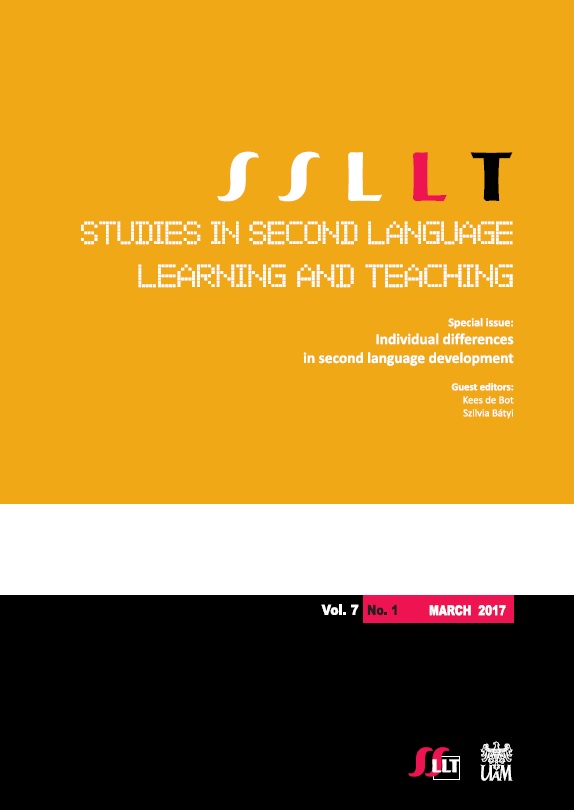Affective and situational correlates of foreign language
proficiency: A study of Chinese university learners of
English and Japanese
Affective and situational correlates of foreign language
proficiency: A study of Chinese university learners of
English and Japanese
Author(s): Yinxing Jin, Kees de Bot, Merel KeijzerSubject(s): Language and Literature Studies, Foreign languages learning
Published by: Wojskowe Biuro Historyczne im. gen. broni Kazimierza Sosnkowskiego
Keywords: teacher support; student affiliation; foreign language anxiety; foreign language proficiency
Summary/Abstract: The study explores the effects of teacher support and student cohesiveness on foreign language (FL) learning outcomes and compares their effect with that of FL anxiety. One hundred and forty-six first-year Chinese undergraduates of Japanese,who were also learning English, participated in two surveys that were administered over a 2-month interval. Data were collected using the Foreign Language Classroom Anxiety Scale (Horwitz, Horwitz, & Cope, 1986), the Teacher Support Scale (Trickett & Moos, 2002), the Affiliation Scale (Trickett & Moos, 2002), the English Proficiency Scale, and the Japanese Proficiency Scale. It was found that (a)student cohesiveness was a positive predictor of FL proficiency, (b) teacher support,which was positively related to student cohesiveness and negatively to FL anxiety, did not show a direct relationship with FL proficiency, and (c) FL anxiety, which was negatively associated with FL proficiency, showed a better predictive power than student cohesiveness and teacher support.
Journal: Studies in Second Language Learning and Teaching
- Issue Year: VII/2017
- Issue No: 1
- Page Range: 105-125
- Page Count: 20
- Language: English

